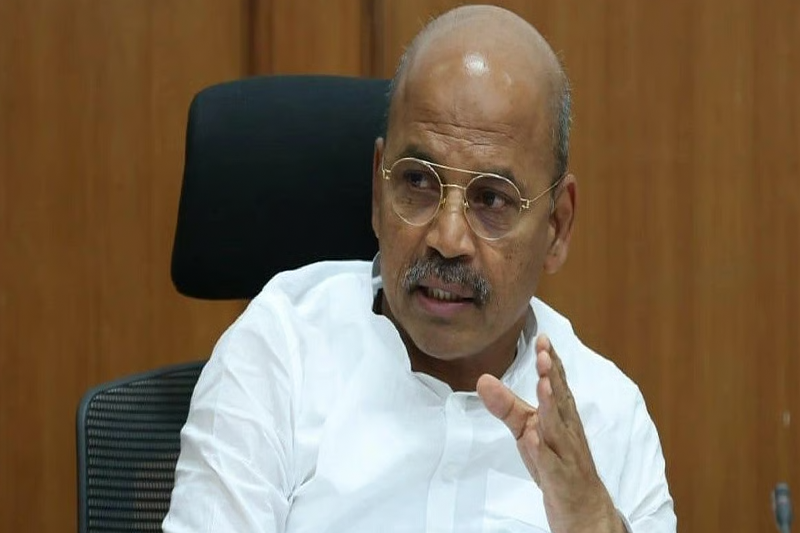
Karnataka Introduces 15% NRI Quota in Government Medical Colleges: A Step Towards Financial Self-Reliance.
The demand for medical education in India has always been high, with Karnataka emerging as one of the leading states regarding medical seats and infrastructure. In a recent move, the Karnataka government announced the introduction of a 15% Non-Resident Indian (NRI) quota in government medical colleges. This decision aims to balance affordability for local students while ensuring financial sustainability for institutions.
Additional Medical Seats Sanctioned for Karnataka
The announcement follows the National Medical Commission (NMC) sanctioning 450 additional medical seats for Karnataka for the academic year 2025–26. This increase marks a significant step in addressing the state's ever-rising demand for medical education.
Of these seats, 400 are fresh allotments spread across various government medical colleges in Karnataka, while the rest are part of course expansions and redistribution. The new seats have been distributed among eight government medical colleges located in Bengaluru, Mysuru, Belagavi, Kalaburagi, Chikkaballapur, Hassan, Raichur, and Vijayanagar, with each college receiving 50 additional seats.
With this expansion, Karnataka’s total tally of medical seats has risen from 9,263 to 9,663, offering more opportunities for aspiring doctors in the state.
Introduction of NRI Quota: Key Highlights
The most notable feature of this development is the decision to earmark 15% of the newly sanctioned 400 seats for the NRI quota. These seats will come with a fixed fee of ₹25 lakh per seat, which will apply to NRI applicants seeking admission into government medical colleges.
According to Sharanprakash R. Patil, Karnataka’s Minister for Medical Education, the move is intended to make government medical colleges more financially self-reliant rather than depending entirely on state grants. “This will help government medical colleges become more self-reliant financially rather than depending heavily on state grants,” he explained during a press briefing at Vikas Soudha.
Addressing Rising Demand for Medical Education
The introduction of additional seats and the NRI quota reflects Karnataka's growing demand for medical education. Every year, thousands of meritorious students qualify through NEET (National Eligibility cum Entrance Test), but many find themselves unable to secure affordable seats due to limited availability in government colleges.
In contrast, private medical colleges often charge prohibitively high fees, creating a financial burden for middle-class families. The minister emphasized that the sanction of additional seats resulted from persistent appeals to the NMC to accommodate the rising number of aspirants. “The number of students aspiring for medical education is rising every year. Many meritorious students are unable to afford high fees in private colleges. Hence, we appealed for more seats, and I’m glad our request has been approved,” said Patil.
Balancing Access and Financial Viability
While introducing the NRI quota has sparked discussions about affordability and access, the state government has clarified that the move is designed to create a balanced model. On the one hand, additional general-category seats will benefit local students, while revenue from the NRI quota will reduce the financial dependence of government colleges on state grants.
The fixed fee structure of ₹25 lakh per NRI seat is expected to generate significant revenue, which can be reinvested into improving infrastructure, upgrading laboratories, strengthening teaching capacity, and expanding healthcare facilities in government institutions.
Implications for Students and Institutions
The expansion of seats is expected to have several implications:
-
Greater Opportunities for Students: With 400 new seats, local students have more chances to secure admission in government colleges at affordable costs.
-
Financial Boost for Colleges: NRI fees will create a new funding channel for colleges, improving their long-term sustainability.
-
Regional Growth: Colleges in districts like Raichur, Kalaburagi, and Hassan, which are often overlooked compared to Bengaluru, will benefit from additional resources and recognition.
-
Wider Access to Healthcare Professionals: More medical graduates will help address the state’s healthcare workforce needs in urban and rural areas.
The Road Ahead
The government’s move signals a larger shift in Karnataka's policy framework for higher education. By blending accessibility for local students with financial independence through NRI quotas, Karnataka may set a precedent for other states.
However, challenges remain. Monitoring the implementation of the NRI quota, ensuring fair admission practices, and maintaining quality education standards are critical to the success of this initiative. Additionally, the revenue generated must be transparently utilized for improving public healthcare infrastructure and not diverted elsewhere.
Conclusion
Karnataka’s decision to introduce a 15% NRI quota in government medical colleges and sanction 450 new seats reflects a forward-looking approach to tackling the twin challenges of access and sustainability in medical education. With nearly 10,000 medical seats now available in the state, the opportunities for aspiring doctors are expanding. At the same time, the revenue from the NRI quota is set to strengthen the financial backbone of government medical institutions.
As medical education continues to evolve, Karnataka’s strategy may become a model for balancing affordability, accessibility, and institutional self-reliance in India’s healthcare education sector.



